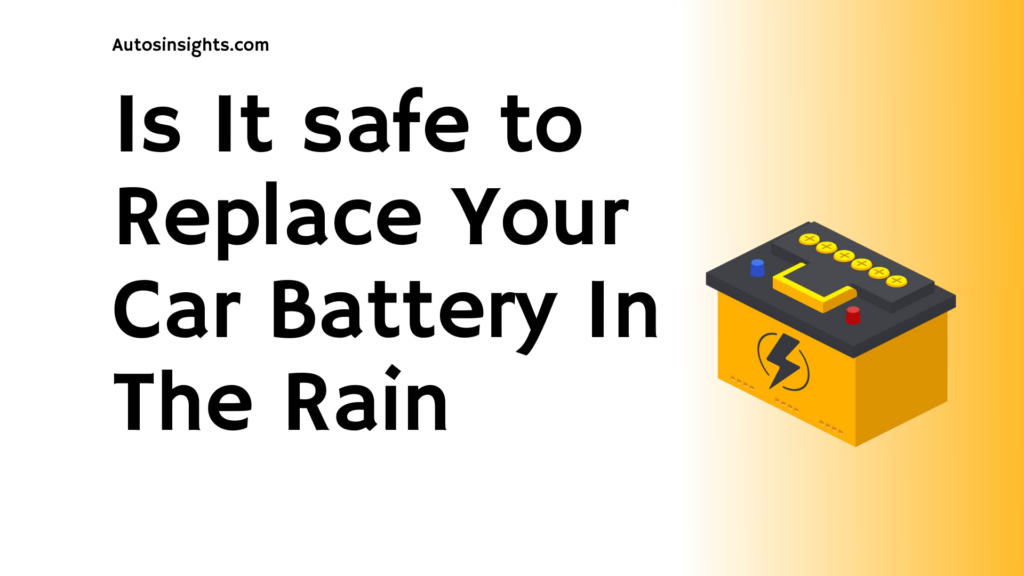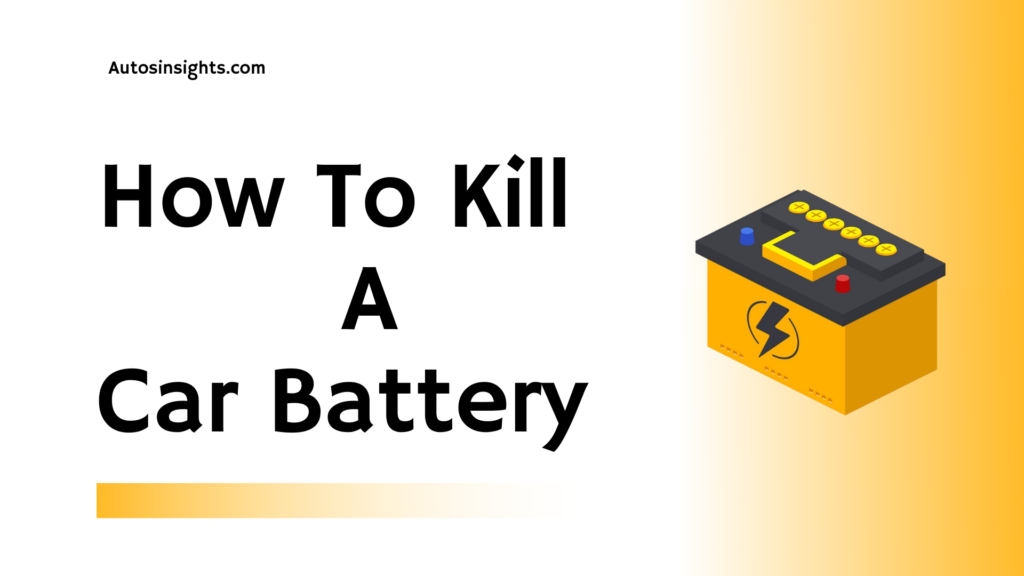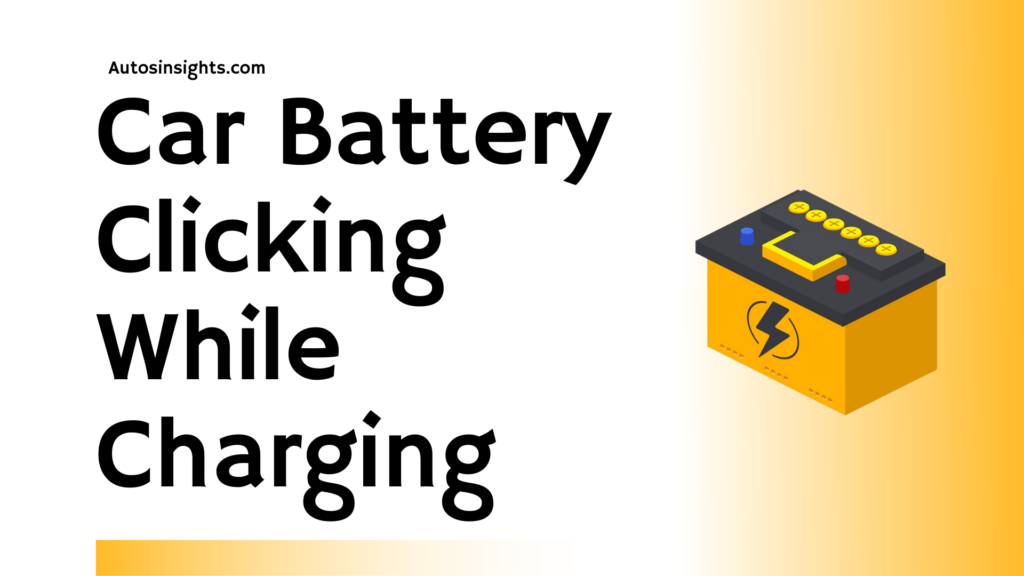Yes, a bad car battery cause low voltage. I will tell you 7 main symptoms of low battery voltage .
| 1. Faulty alternator or voltage regulator 2. Corroded or loose connections 3. Faulty battery 4. Extended periods of inactivity 5. Extra electrical load 6. Faulty circuit restricting the operation of multiple electrical components 7. Worn brushes in the alternator |
Can A Bad Car Battery Cause Low Voltage
A car’s charging system is responsible for supplying electricity to the various electrical components in a vehicle.
It does this by converting the engine’s mechanical energy into electrical energy. Most car battery charging systems have three main parts: the battery, the alternator, and the voltage regulator.
The battery provides a static charge that can be used to start the engine and power the accessories when the engine is off.
The alternator supplies power to the electrical system while the engine is running. The voltage regulator ensures that the electrical system receives a constant voltage supply by regulating the alternator’s output. A bad battery can cause low voltage in a car’s charging system.
What is charging voltage too low?
If your car’s charging system isn’t working properly, the battery may not get the power it needs to start the engine. One potential issue is a low charging voltage.
This can happen if the alternator isn’t putting out enough power or if there is a problem with the battery itself. A loose connection between the battery and the alternator can also cause a low charging voltage.
If you suspect your car has a low charging voltage, you should take it to a mechanic to check it out. The mechanic will hook a voltmeter to the battery and test the charging system. If the voltmeter registers 12.6 volts or less, then the charging system is not working properly and needs to be fixed.
The common reasons why car charging systems output low voltage to the battery.
A few common reasons your car charging system may output low voltage to the battery. One possibility is that the alternator belt is loose or worn, causing the alternator to spin slower and produce less power.
Another possibility is that the battery itself is old or damaged and can’t hold a charge as well as it used to.
Finally, if you have a lot of electrical accessories hooked up to your car, they may be drawing too much power and stressing the charging system.
If you suspect that your charging system is outputting low voltage, it’s important to have it checked out by a mechanic so they can diagnose the problem and make the necessary repairs.
Will a bad car battery cause voltage drop?
Voltage drop is a common problem with car batteries. When the battery is not working properly, it can not provide enough power to start the engine.
This can lead to voltage drop, which can damage the electrical system. In some cases, the voltage drop can also cause the engine to stall.
If you are having problems with your car battery, it is important to take it to a mechanic to have it checked out.
There are a few things that can cause voltage drop, and a mechanic will be able to diagnose the problem and fix it.
Low battery voltage
Several things cause a low battery voltage. The most common is a problem with the alternator or generator.
If the charging system is not working properly, the battery will not be able to maintain a full charge. Another common cause of low battery voltage is a problem with the battery itself.
If the battery is old or has been damaged, it may no longer be able to hold a full charge.
Additionally, if the battery terminals are corroded, this can cause low voltage. There are some ways to troubleshoot and fix low battery voltage issues.
If you suspect that the problem is with the charging system, you can take your car to a mechanic and have it checked out. You may need to replace the battery if the problem is with the battery. Cleaning the terminals can also help to improve the situation.
What is a Battery Charger, and Why Do I Need One?
A battery charger is a device that supplies electrical energy to one or more batteries. The charging process changes the composition of the electrolyte and reverses the chemical reaction that occurs when the battery is discharged.
That can be accomplished either by supplying DC to the positive terminal and grounding the negative terminal or by AC coupling to both terminals.
A battery charger can also condition a battery, bringing it back to its full capacity by equalizing the voltage across all cells, both battery positive.
Why do you need a battery charger? There are several reasons:
- If you regularly use your battery-powered devices, keeping them charged is important so they’re ready when you need them.
- If you plan on storing your batteries for an extended period, it’s best to charge them before putting them away; this will help prolong their lifespan.
- If your batteries are damaged or degraded, a charger can sometimes help bring them back to life.
There are many different types of battery chargers on the market, so choosing one compatible with your particular type of battery is important.
Most chargers have LED indicators that show you when the charging process is complete.
Some also include overcharge protection and automatic shut-off to prevent battery damage. When shopping for a charger, read the reviews to get an idea of which models are most popular and well-rated.
What is a car’s charging system?
A car’s charging system is responsible for supplying electricity to the various electrical components in a vehicle. It does this by converting the engine’s mechanical energy into electrical energy.
The charging system comprises three main parts: the battery, the alternator, and the voltage regulator. The battery provides a static charge that can be used to start the engine and power the accessories when the engine is off.
The voltage regulator ensures that the electrical system receives a constant voltage supply by regulating the alternator’s output. A bad battery can cause low voltage in a car’s charging system.
What should I do if my car battery is low voltage?
If your car’s battery shows signs of a low voltage, you can do a few things to rectify the situation. First, ensure that all your car’s lights are turned off.
Next, check the connections to the battery to ensure they are clean and free of corrosion. You can try charging the battery with a jump starter or a portable charger if the connections are clean and secure.
If the battery still does not hold a charge, it may need to be replaced. It is always best to consult a professional mechanic to diagnose and solve the problem. You can keep your car’s battery healthy and functioning properly with a little care and attention.





